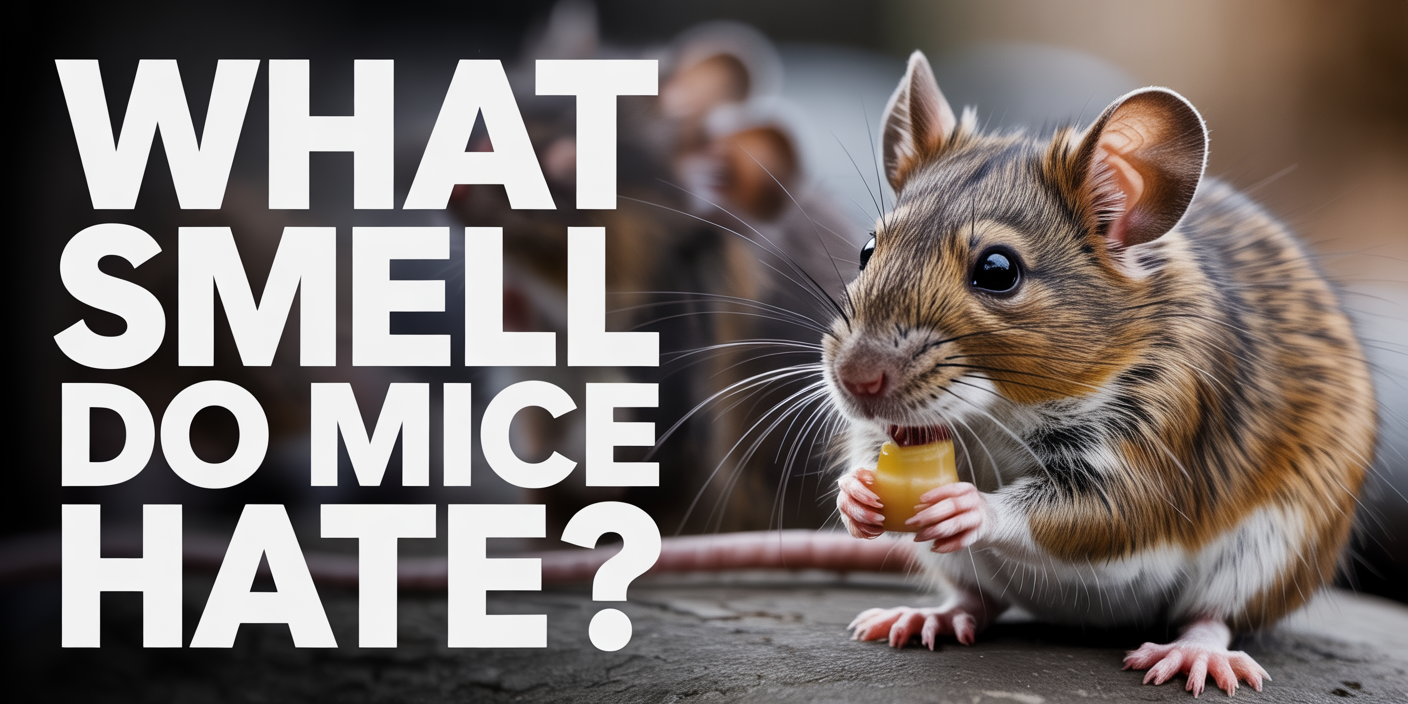Mice hate strong smells like peppermint oil, ammonia, vinegar, and clove. These scents overwhelm their sensitive noses and make the area feel unsafe, which drives them away.
Mice may be small, but they bring big problems; chewed wires, contaminated food, and droppings that can spread disease. While traps and poisons are common fixes, there’s a safer, more natural way to send them packing: smells they can’t stand.
By using the right scents in the right places, you can make your home a no-go zone for these unwelcome guests without harming them.
Learn more: Do dryer sheets repel mice?
What Smell Do Mice Hate the Most?
Mice can’t stand strong, pungent odors that interfere with their ability to sniff out food and feel secure. Scents like peppermint oil, ammonia, vinegar, clove, and eucalyptus are particularly irritating to them and send a clear signal that the area isn’t safe.
These smells trigger their natural instinct to flee and find shelter elsewhere. While they won’t harm the mice, they can create a powerful barrier when used correctly, especially around entry points, nesting spots, or areas where mice are frequently seen.
Why Are Mice So Sensitive to Smells?
Mice rely heavily on their sense of smell to navigate, locate food, and detect predators. Their noses are incredibly sensitive, allowing them to pick up on subtle chemical cues in their environment, even more so than humans or many other pests.
Because of this heightened sensitivity, strong or unfamiliar odors can feel overwhelming and even dangerous to them. When they encounter a scent that masks their usual scent trails or smells like a threat, they’ll usually retreat to find a calmer, more familiar space.
Common Smells That Repel Mice
Peppermint oil is one of the most popular natural repellents because its strong, minty scent is overwhelming to mice. Just a few drops on cotton balls placed near baseboards, cabinets, or entry points can discourage them from entering or sticking around.
Other effective scents include clove and cinnamon, which are spicy and sharp, as well as ammonia, which mimics the smell of predator urine. Vinegar and eucalyptus also make the list for their harsh, lingering odors that mice find unwelcoming. When used consistently, these smells can help push mice out and keep new ones from settling in.
How to Use These Scents Effectively?
The key to using scent-based repellents is proper placement and consistency. Soak cotton balls in peppermint oil, vinegar, or clove oil and tuck them into corners, under sinks, behind appliances, and along baseboards where mice tend to travel or hide.
For larger areas, mix essential oils with water in a spray bottle and mist around potential entry points, garage doors, or crawlspace vents. Just remember, these scents fade over time, especially in open or drafty spaces—so you’ll need to reapply every few days to keep the smell strong enough to repel them.
Can Smell-Based Repellents Get Rid of Mice Completely?
Smell-based repellents can help prevent mice from entering in the first place or encourage them to leave during the early stages of activity. They’re most effective as part of a proactive strategy, especially when combined with good sanitation and sealing up gaps or holes.
However, if mice have already established a nest or found a steady food source, strong smells alone usually won’t be enough to drive them out. In those cases, they might tolerate the scent just to stay warm and fed. That’s when additional control measures, or expert help, become necessary.
Smells That Don’t Work?
Some commonly shared home remedies just don’t hold up when it comes to deterring mice. Things like coffee grounds, lemon juice, or dryer sheets may smell strong to us, but they don’t consistently trigger the same aversion response in rodents.
In many cases, mice simply adapt or walk right past these scents once they realize there’s no actual threat. Relying on weak or unproven smells can give a false sense of security, allowing an infestation to grow while you think it’s under control. Stick with proven deterrents and back them up with prevention.
When to Call a Professional for Mouse Removal
If you’re seeing mouse droppings, hearing scratching in the walls, or noticing gnawed food packaging, chances are the problem is bigger than what smells alone can fix. Once mice start nesting indoors, they multiply quickly and become harder to remove with DIY methods.
That’s when it’s time to call in a licensed wildlife removal team like AAAC Wildlife Removal. Professionals can locate entry points, remove existing mice safely, and put long-term prevention in place to make sure they don’t return. It’s faster, safer, and more effective than going it alone.
Why Smells Alone Won’t Keep Mice Away for Good?
Strong scents like peppermint, vinegar, and ammonia can make your home less appealing to mice, especially when used early and consistently. These natural repellents overwhelm their senses and can steer them away from nesting areas before a real infestation begins.
Still, if food and shelter are easy to access, mice may return regardless of how bad it smells. That’s why it’s smart to pair scent deterrents with sealing entry points and keeping your space clean, or call in the pros when things get out of hand.
Stop the Scent Games, Call AAAC Wildlife Removal!
If you’ve tried peppermint oil, vinegar sprays, or clove-scented cotton balls and the mice are still around, it’s time to stop guessing. Scent deterrents are great for prevention, but once mice settle in, they’re stubborn and hard to evict without expert help.
At AAAC Wildlife Removal, we handle mouse problems from start to finish. Our team doesn’t just remove the pests, we find how they got in, seal those points, and set up effective, humane strategies to keep them from coming back. One call, and we’ll take care of it the right way.




